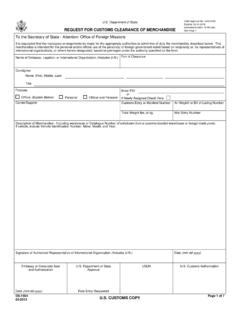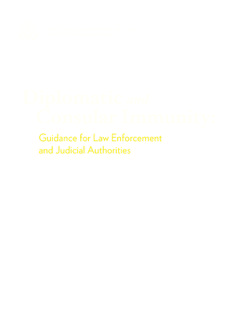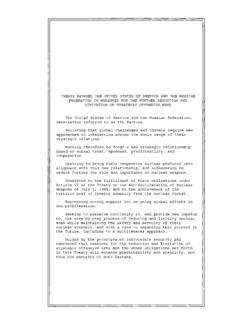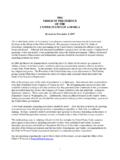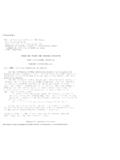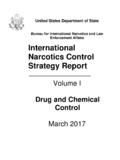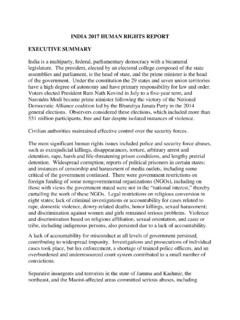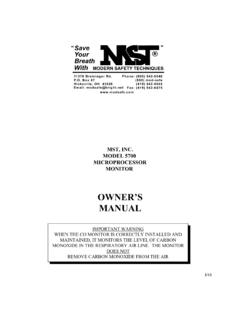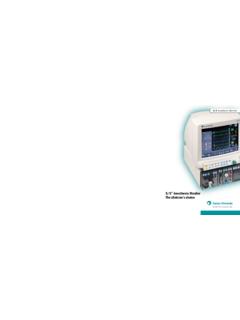Transcription of 2017 Trafficking in Persons Report - State
1 292 NAMIBIA international organization, the government developed a draft NRM during the reporting period. The drafting process involved significant coordination among multiple government agencies, law enforcement, and civil society. However, it did not finalize implementing regulations for the protection and prevention provisions of the 2008 anti- Trafficking law. Draft implementing regulations for Trafficking victim and witness protection were not finalized by the end of the reporting continued to operate facilities in more than 215 police stations and 22 Victims of Violence centers throughout the country offering temporary shelter, food, limited counseling, and monitoring following reintegration for victims of crime; however, it remained unclear whether Trafficking victims benefited from these services in 2016.
2 The anti- Trafficking law requires police protection for victims who participate as witnesses in criminal proceedings against traffickers. The multi-sectoral care mechanism, which coordinates referrals and protective provisions for female victims of violence, remained inadequate and inoperative in 2016. Although Mozambican law provides for temporary residency status or legal alternatives to the removal of foreign victims to countries where they might face hardship or retribution, the government did not use this provision during the reporting government made modest efforts to prevent Trafficking . The NRG met at least twice during the reporting period to coordinate anti- Trafficking efforts at the national level and to draft an updated national action plan; however, the plan was not finalized by the end of the reporting period.
3 Provincial-level reference groups, consisting of local officials, police, border guards, social workers, NGOs, and faith-based organizations, continued to coordinate regional efforts to address Trafficking and other crimes. These groups carried out awareness campaigns throughout the country with support from an international NGO. The labor ministry employed an inadequate number of labor inspectors who lacked training and resources to effectively monitor for child Trafficking and other labor violations, especially on farms in rural areas. Mozambican officials remained without effective policies or laws regulating foreign recruiters and holding them civilly and criminally liable for fraudulent recruiting.
4 The government did not demonstrate tangible efforts to reduce the demand for commercial sex acts or forced labor during the year. It did not provide anti- Trafficking training for its diplomatic personnel. Trafficking PROFILEAs reported over the past five years, Mozambique is a source, transit, and, to a lesser extent, destination country for men, women, and children subjected to forced labor and sex Trafficking . The use of forced child labor occurs in agriculture, mining, and market vending in rural areas, often with the complicity of family members. In addition to voluntary migrants from neighboring countries, women and girls from rural areas, lured to cities in Mozambique or South Africa with promises of employment or education, are exploited in domestic servitude and sex Trafficking .
5 Mozambican girls are exploited in bars, roadside clubs, overnight stopping points, and restaurants along the southern transport corridor that links Maputo with Swaziland and South Africa. Child sex Trafficking is of growing concern in Maputo, Beira, Chimoio, Tete, and Nacala, which have highly mobile populations and large numbers of truck drivers. As workers and economic migrants seek employment in the growing extractive industries in Tete and Cabo Delgado, they increase the demand for sexual services, potentially including child sex Trafficking . Mozambican men and boys are subjected to forced labor on South African farms and mines where they often labor for months without pay under coercive conditions before being turned over to police for deportation as illegal migrants.
6 Mozambican boys migrate to Swaziland to wash cars, herd livestock, and sell goods; some subsequently become victims of forced labor. Mozambican adults and girls are subjected to forced labor and sex Trafficking in Angola, Italy, and Portugal. Persons with albinism, including children, are increasingly vulnerable to Trafficking for the purpose of organ removal. Informal networks typically comprise Mozambican or South African traffickers. South Asian smugglers who move undocumented South Asian migrants throughout Africa also reportedly transport Trafficking victims through Mozambique. Previous reports allege traffickers bribe officials to move victims within the country and across national borders to South Africa and Swaziland.
7 NAMIBIA: TIER 2 The Government of Namibia does not fully meet the minimum standards for the elimination of Trafficking ; however, it is making significant efforts to do so. The government demonstrated increasing efforts compared to the previous reporting period, therefore, Namibia remained on Tier 2. The government demonstrated increasing efforts by identifying and referring to care more Trafficking victims, by drafting a national mechanism to refer victims to care, and by establishing a multi-sectoral steering committee, the TIP National Coordinating Body (TNCB), and signing a memorandum of understanding to strengthen inter-ministerial coordination on Trafficking cases. However, the government did not meet the minimum standards in several key areas.
8 The government did not convict any traffickers. Government-funded shelters lacked personnel and resources to assist victims. The government did not conduct awareness activities. RECOMMENDATIONS FOR NAMIBIAF inalize and enact comprehensive anti- Trafficking legislation; increase efforts to investigate, prosecute, and convict traffickers, including for forced labor; adopt and implement the draft national mechanism to identify victims and refer them to care; allocate additional resources for shelter services, including to develop a plan to fully operationalize renovated safe houses specifically for Trafficking victims; finalize and implement a new national action plan to guide anti- Trafficking efforts; train officials on relevant legislation; institute a unified system for collecting Trafficking case data for use by all stakeholders.
9 Strengthen coordination among government ministries at both the ministerial and working level; and increase efforts to raise awareness, especially in rural government maintained anti- Trafficking law enforcement efforts. The 2009 Prevention of Organized Crime Act criminalizes all forms of Trafficking and prescribes sentences of up to 50 years imprisonment and a fine for Persons who participate in Trafficking offenses or aid and abet traffickers, penalties that are sufficiently stringent and commensurate with punishments prescribed for other serious crimes, such as rape. In April 2015, the government enacted the Child Care and Protection Act, which includes provisions explicitly criminalizing child Trafficking and providing protection measures for victims of child Trafficking ; however, the bill will not enter into force until regulations related to other parts of the law have been promulgated.
10 The government continued to review the National Human Trafficking Bill, which is meant to provide a single point of reference for all Trafficking cases and also includes protection and prevention measures; however, it was not enacted at the end of the reporting period. In 2016, the government conducted eight Trafficking investigations, three for sex Trafficking and five for forced labor, compared to seven in 2015. The government initiated prosecution in two Trafficking cases of seven defendants, the same as in 2015. The government did not convict any traffickers, compared to one conviction in the previous reporting period. One prosecution initiated in 2014 resulted in acquittal during the reporting period.

